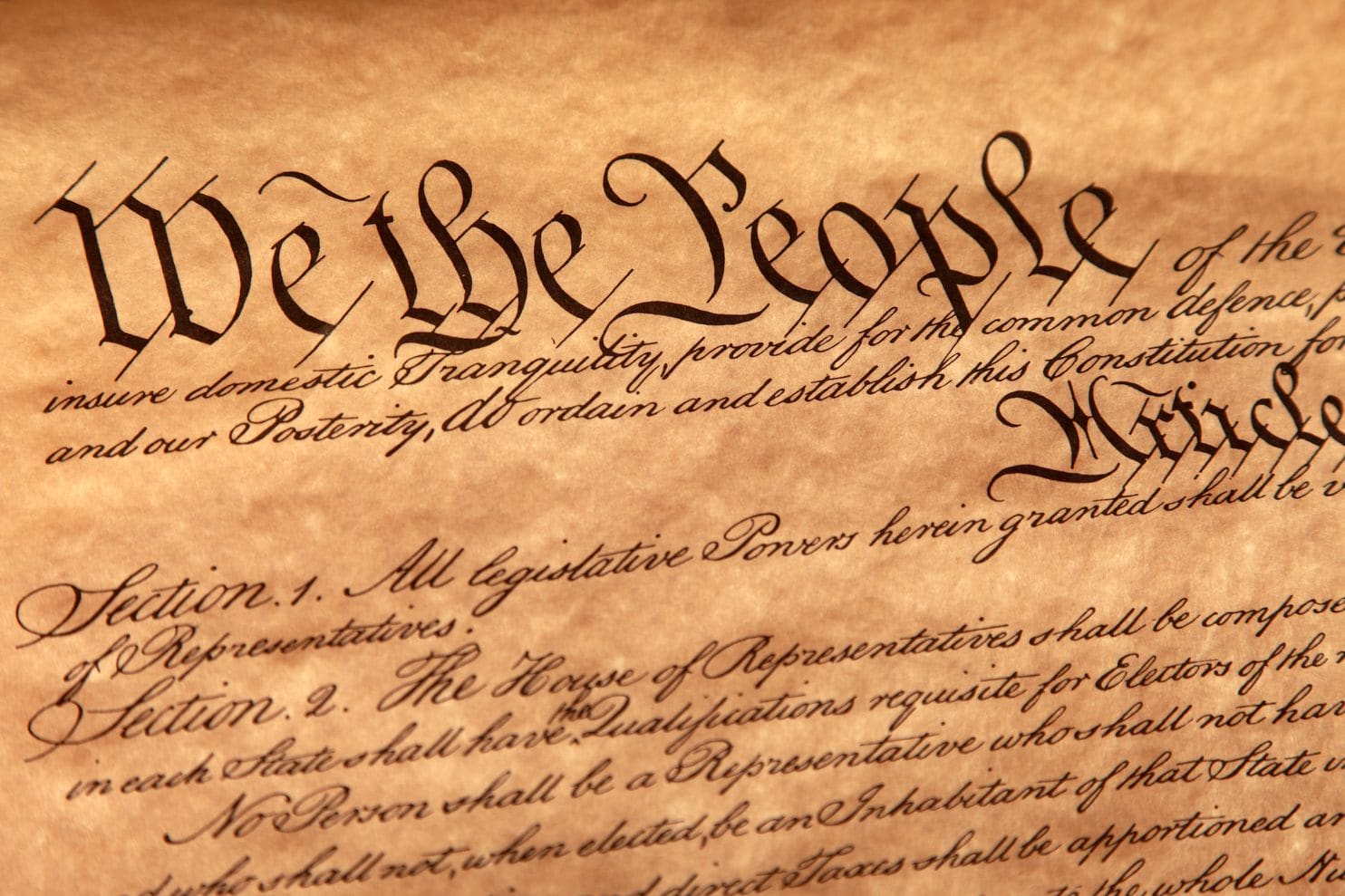By: George T. Conway III & Neal Katyal – washingtonpost.com – October 30, 2018
Sometimes the Constitution’s text is plain as day and bars what politicians seek to do. That’s the case with President Trump’s proposal to end “birthright citizenship” through an executive order. Such a move would be unconstitutional and would certainly be challenged. And the challengers would undoubtedly win.
Trump has long argued that birthright citizenship for the children of parents not legally in the United States should be abolished. “It’s ridiculous. And it has to end,” he told Axios in an interview released Tuesday, in which he disclosed his plan for the unilateral action.
But at its core, birthright citizenship is what our 14th Amendment is all about, bridging the Declaration of Independence’s promise that “all men are created equal” with a constitutional commitment that all those born in the United States share in that equality.
Birthright citizenship sprang from the ashes of the worst Supreme Court decision in U.S. history, Dred Scott v. Sandford, the 1857 decision that said that slaves, and the children of slaves, could not be citizens of the United States. The blood of hundreds of thousands of Americans was shed to repudiate that idea.
Afterward, the drafters of the 14th Amendment declared in their very first sentence, “All persons born or naturalized in the United States, and subject to the jurisdiction thereof, are citizens of the United States.” The drafters were motivated by their utter revulsion toward slavery and a system that relegated people to subordinate political status because of their birth. They weren’t thinking of, or concerned with, any exceptions to birthright citizenship other than the absolutely essential.
And what they wrote was simple and clear. Both proponents and opponents of the language at the time knew exactly what it meant: Virtually anyone born in the United States is a citizen. In 1898, the Supreme Court affirmed just that: It held that the “Fourteenth amendment affirms the ancient and fundamental rule of citizenship by birth within the territory” — “including all children here born of resident aliens.” The exception? “Two classes of cases” in which the United States could not apply its laws to foreigners under historic Anglo-American legal principles: “children born of alien enemies in hostile occupation, and children of diplomatic representatives of a foreign state.”
Neither of those narrow exceptions supports what Trump proposes to do by executive order. He is threatening, with the stroke of a pen, to declare certain people who are born in the United States ineligible for citizenship — despite the plain words of the 14th Amendment.
The president promised to put justices on the Supreme Court in the mold of the late Antonin Scalia, but we have no doubt what Scalia — who preached adherence to the text of the Constitution and the laws of the United States in light of their original meaning — would think about this proposal. To say that he would have declared it dead on arrival would be an understatement. Whatever one may think of the merits of adding a further exception to the 14th Amendment’s guarantee of birthright citizenship — and the more conservative of the two of us (Conway), were he redrafting the amendment from scratch, might consider adding another narrow exception — the simple fact is that the amendment, as written, doesn’t permit it.
Beyond this, the president’s proposal suffers from another infirmity — it exceeds the scope of his authority. Our Constitution could not be clearer that it is Congress, not the president, who is in the driver’s seat when it comes to immigration. Congress has specific powers over immigration in Article I; the president, none whatsoever, except as Congress has given to him by statute. And Congress has already spoken. In 1952, Congress declared, “The following shall be nationals and citizens of the United States at birth . . . a person born in the United States, and subject to the jurisdiction thereof.”
Indeed, once upon a time, in the fall of 2015, candidate Trump recognized that pesky Article I problem. A television host asked him, “The courts have ruled twice against the anchor baby stuff. You’d have to get a constitutional amendment passed to overturn that.” Mr. Trump’s answer: “You don’t have to do a constitutional amendment. You need an act of Congress. I’m telling you — you need an act of Congress. Everybody thought you needed a constitutional amendment. You don’t need that.”
He was wrong — a constitutional amendment would indeed be necessary to revoke birthright citizenship. But no matter what, an executive order could never suffice, notwithstanding the president’s assertion to Axios: “You can definitely do it with an act of Congress. But now they’re saying I can do it just with an executive order.” Whoever they are, they have it wrong. An executive order to reinterpret “subject to the jurisdiction thereof” could never pass muster because, if the Constitution provides any leeway to decide the meaning of that phrase, it provides it to Congress, and not the president.
The fact that the two of us, one a conservative and the other a liberal, agree on this much despite our sharp policy differences underscores something it is critically important to remember during a time marked by so much rancor and uncivil discourse: Our Constitution is a bipartisan document, designed to endure for ages. Its words have meaning that cannot be wished away.
To see this article, click read more.
Source: George Conway and Neal Katyal: Trump’s proposal to end birthright citizenship is unconstitutional
 Listen Online
Listen Online Watch Online
Watch Online Find a Station in Your Area
Find a Station in Your Area







 Listen Now
Listen Now Watch Online
Watch Online
